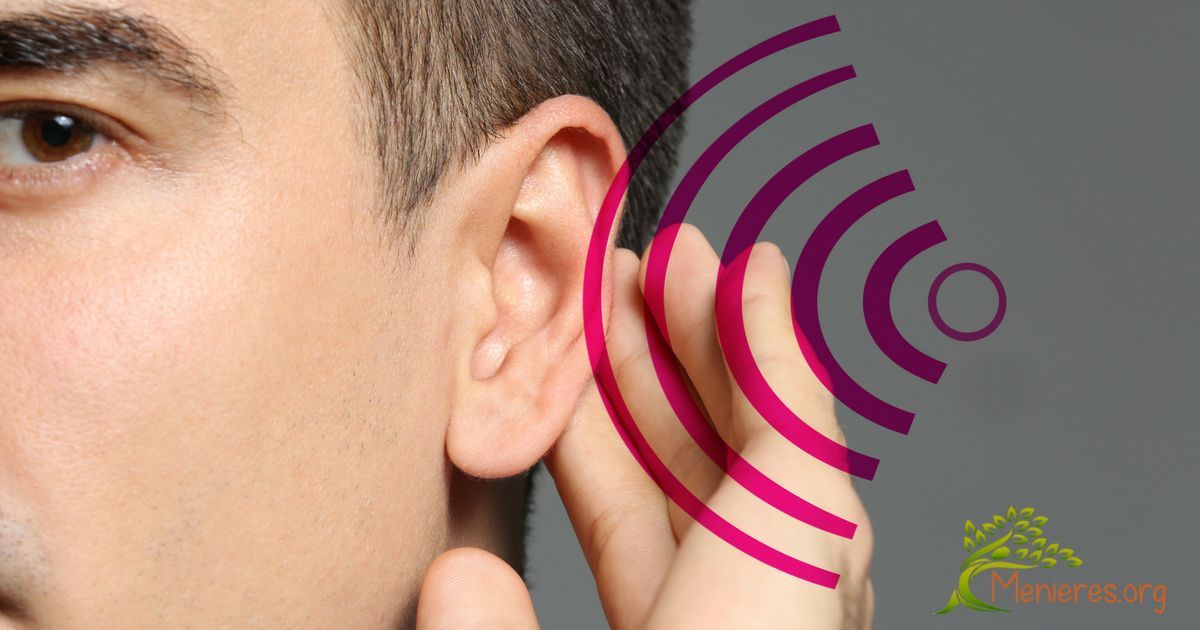
In the mid-1800s, the physician Prosper Meniere was studying hearing loss. Through his research, he found people with an odd blend of symptoms occurring alongside hearing difficulties. The constellation of symptoms is what physicians identify as Meniere’s Disease.
It’s a condition affecting about .2 percent of the population. If you’re wondering why you never heard of Meniere’s, it’s because the disorder is not only rare, but it’s an invisible, chronic condition.
Meniere’s Disease Symptoms

Meniere’s disease manifests with bouts of vertigo that are much longer than a simple dizzy spell. These episodes go on for 20 minutes or more, some lasting as much as a full day! Along with this feeling like the world is spinning, the Meniere’s patient may have ringing in one ear, a sense of pressure in the same ear and some level of hearing loss.
The most difficult part of the disease from a diagnostic and treatment standpoint is its irregularity. Meniere’s attacks come and go at no specific intervals. Each attack begins with vertigo, but may or may not include the other most common symptoms. While the tilting sensation is very disconcerting and presents safety risks, many sufferers complain of losing hearing bothers them the most.
Hearing is an especially important sense in terms of how we experience the world. Meniere’s patients say they miss the little sounds like a bird chirping in the distance on a sunny day. Hearing also connects us to our circle at home, at work, and in social situations. When we can’t hear our loved ones properly, it can lead to a sense of isolation and depression. Perhaps hearing combines with our other senses helping to keep us safe.
Meniere’s Hearing Loss Progression

At the beginning of this condition, hearing loss may be unnoticeable. Meniere’s affects the lower tonal ranges of sounds, and even then, it’s only in one ear. Sadly, for most people, this mild hearing loss only gets worse.
During the middle stage of the disease, a person may not have as many vertigo episodes, or they may not seem as severe. Nonetheless, tinnitus continues. Hearing loss increases. There may be months in between prevalent symptoms now.
After several years, vertigo continues to fade. Sometimes, it disappears totally. Meanwhile, ringing in the ear becomes markedly worse and distracting. Hearing loss also progresses. This element alone leaves people feeling off balance or unsteady even without vertigo.
Between 50 and 74% of Meniere’s patients end up with some level of hearing loss in both ears rather than just the one ear where symptoms began. If the second ear will show signs of damage, it will usually do so within five years of the disease’s inception.
How Hearing Loss Effects the Meniere’s Patient

If you have gone through the testing phase for Meniere’s and have a concrete diagnosis, you’re wondering what to expect. When you have hearing loss in one ear, it changes your perceptions. Confusion and sound distortion are common. Think of what it’s like to hear one side of a telephone conversation, or to be talking to someone on the phone with an unclear line. Things don’t make complete sense or seem garbled. That’s what your brain is trying to sort out–you no longer have symmetrical signals going from your inner ear to the brain.
How Meniere’s syndrome will impact your life depends on several factors. Each person is different. The most common problem is being able to have a decent conversation in a noisy environment (heck, even people with GOOD hearing have trouble conversing in a busy bar). Going to parties or out for a meal becomes a struggle and you might worry about being embarrassed. It feels like you cannot understand everything you hear.
Another issue Meniere’s sufferers face is the inability to determine where a specific sound originates from in one’s environment. Each ear processes the sound differently. Because one ear hears better than another, you can get the false impression a sound originates from a certain direction when it may not. You’re constantly turning your head so that your good ear is toward the person speaking. The ongoing, back-and-forth movement you engage to improve clarity can set off vertigo too.
Another result is finding sounds seem abnormally louder than they are to the point of being painful. This is a way that your body is trying to compensate for those things it cannot hear.
Summing it All Up: Meniere’s Patients Find Help with Hearing Aids

Some people try using an earplug in their affected ear so that noisy environments don’t bother them so much. Many physicians specializing in Meniere’s advise against this. Over time, this can make your ear even more sensitive. Rather, if you are in an environment where sound seems loud, use earplugs or protective headsets on both ears.
Hearing aids are helpful for those with Meniere’s. But, the aid must undergo adjustments for the individual (no “off the rack” equipment). The hearing aid needs to offer a proper fit, so it amplifies the sounds you have trouble hearing and decreases uncomfortable sounds.
Better still, 70% of the people with Meniere’s have tinnitus. But, a hearing aid offers notable relief. Tinnitus, described by some as ringing, whooshing, buzzing, roaring, or static in one ear, does not create any portion of Meniere’s hearing loss. However, it can worsen issues by adding a distracting internal noise on top of sound already muffled. A hearing aid helps balance out how you sense the world around you so your balance may not feel so shaky.
The degree of hearing loss with Meniere’s varies as much as the disease’s symptoms. Some people have an ongoing, gradual decline throughout the progression of their condition. Some experience hearing loss during an attack that dissipates afterward. In either case, allow an audiologist to treat and follow you. A professional can monitor your hearing levels and offer potential treatments suited to your Meniere’s care plan.



